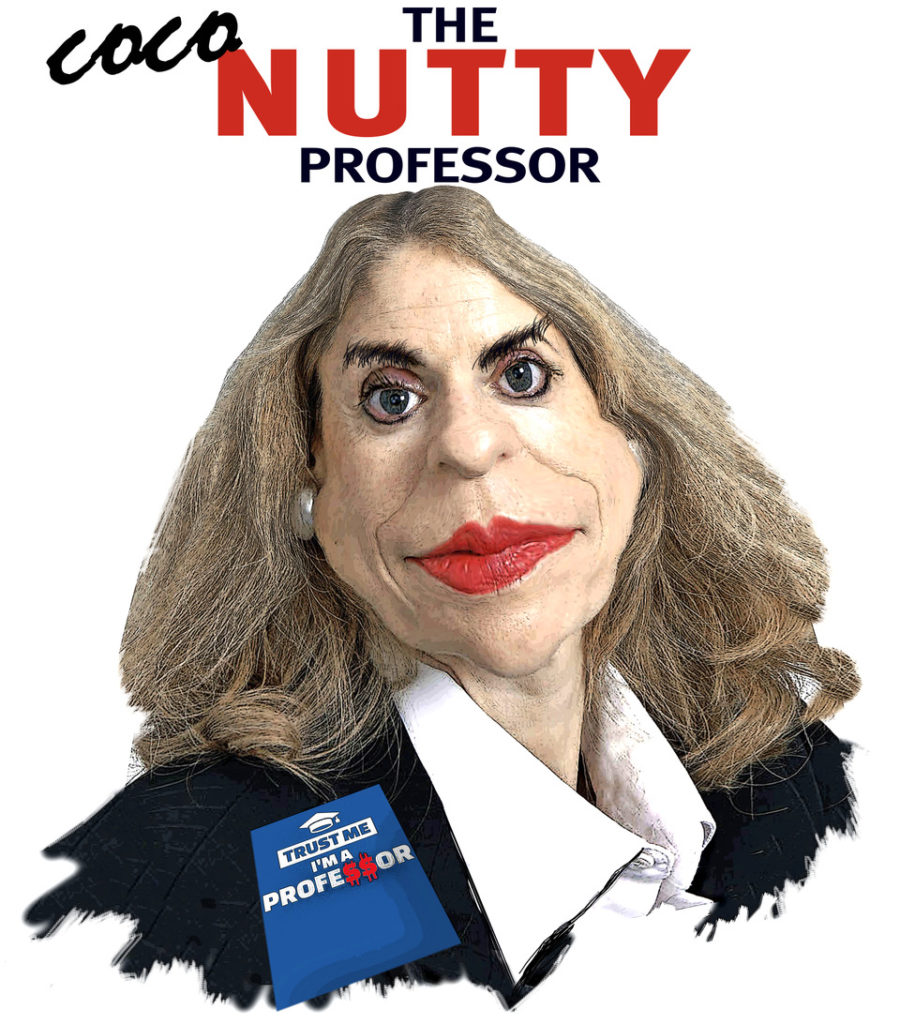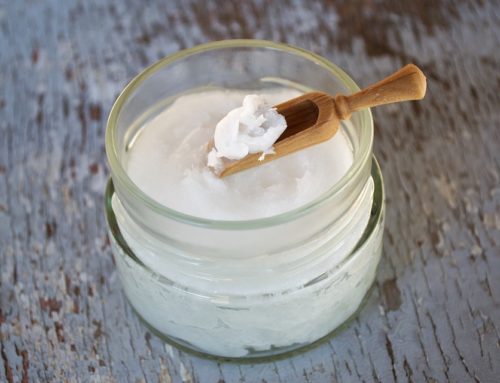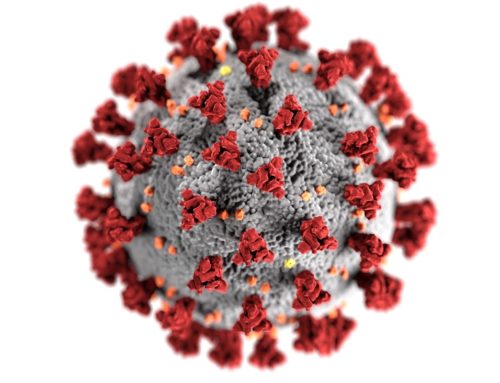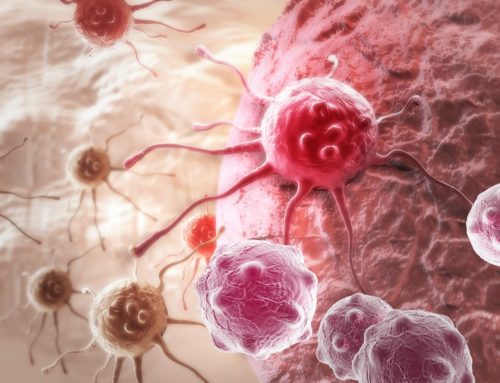
{%CAPTION%}
Should we take what Karin Michels said about coconut oil seriously?
When I first heard what she said I simply laughed in amazement. When an elderly and wise woman makes such a brazen statement and misuses her title of profe$$or, one can only think she is adopting the Trump strategy. Her statement, most likely inspired by $$, that ‘coconut oil is pure poison’ must certainly not be taken seriously.
Michels cited no evidence whatsoever to back up her assertion. According to her, coconut oil is a saturated fat and saturated fat is bad for you. It clogs your arteries because saturated fat is hard at room temperature, she prattled on. Michels is defending rubbish, and providing no evidence whatsoever. So, in this view, everything that is solid at room temperature will clog your arteries – read meat, fish, vegetables, fruit… you name it. It’s simply a foolish conclusion. Does the good profe$$or even know that coconut oil is liquid at 20 °C? Basically, it cannot get any more liquid than when it’s at body temperature.
Does she even have the expertise to make such a statement? No, to be honest, not really. She’s no medical doctor, no nutritionist and no biochemist specialising in fats. In fact, her academic speciality is studying statistics, particularly cancer-related stats. She published no studies of her own on the subject, and all that she voiced was her opinion based on childhood knowledge. With no updates.
But Harvard University Professor Walter Willett is a specialist in the field. He has lectured medicine at the university, is a medical doctor, nutritional scientist and has studied the impact of nutrition on populations. The academic has published 1,500 articles that deal with nutrition and epidemiology and is the world’s second-most cited author in clinical medicine. He was also the chief scientist for a cluster of large-scale studies named Nurses’ Health Study 2, which kicked off in 1989. So what does he have to say about saturated fat?
Harvard’s Dr Willett already said the following back in 1995: ‘There is no relation between saturated fat and cardiovascular diseases’
‘The most extensive studies have today found no link between the consumption of saturated fats and heart diseases.’ After his large-scale study Dr Willett concluded that ‘the data from this meta-study reject the strong relationship between consumption of saturated fat and the risk of cardiovascular diseases, which international opinion asserts exists’.1
‘The (imaginary) relationship between “saturated fat – cholesterol – cardiovascular heart disease’ is the greatest scam in the history of medicine,’ said biochemist and Vanderbilt University Professor George Mann
‘Studies of the Masai tribes in Tanzania and Kenya, the Alaskan Eskimos and the Pygmies of the Congo have shown that saturated fat is not the cause of high cholesterol and cardiovascular disease,’ George Mann asserted. He lived to the age of 93 (dying in 2013) and devoted his life as a medical researcher to the effects of cholesterol on our health. Mann published over 200 medical reports, was a researcher for the American Heart Association and was co-director of one of the largest heart programmes (the Framingham Heart Program). 2
‘Saturated fat is good for you,’ is what Mary Enig had to say about the debate in 2005. Enig was a highly qualified scientific researcher who focussed on fats (University of Maryland).
‘The idea that saturated fat causes heart diseases is completely wrong. But this fat hypothesis is so ingrained in our minds that it is difficult to convince them of the contrary, unless they want to read about it.’ 3
As a nutritionist who specialised in studying the effect of fats on our health, she unequivocally stated that ‘butter and coconut oil are good for our hearts’. Enig was one of the first scientists to take on the war against trans fats, and it took over 20 years before the quantity of trans fats in our diets was cut and they were generally accepted as the culprits. Thanks Mary!
‘Oops, we were mistaken,’ is what the medical world should say when it comes to saturated fat and cholesterol
Dr Ernest Curtis, a cardiologist and author of the science-backed book The Cholesterol Delusion, hopes that the world of medicine will one day admit: ‘Oops, we were mistaken’. That’s because saturated fat is healthy, at least as healthy as unsaturated fat. Refined carbohydrates are, according to the Lancet, Time Magazine and the British Medical Journal, the cause of many diseases of affluence.
Over 100 scientific studies, published over decades, prove time and again the benefits of coconut oil. It has been scientifically demonstrated that coconut oil:
Raises HDL cholesterol (the ‘good’ cholesterol) and that coconut oil improves the HDL/LDL ratio, even more so than olive oil. 45
Four Harvard University professors, all of whom are better qualified than Karin Michels to comment on coconut oil, given that they have published and reviewed articles on coconut oil, are George L. Blackburn, MD, PhD, Edward Mascioli, MD, and Vigan K. Babyan, PhD. They conclude: ‘Coconut oil has an important medical role to play in nutrition, metabolism, and health care. Coconut oil may be the preferred vegetable oil in our diet and the special hospital foods used promoting patient recovery.’ 6
Thailand has one of the highest levels of coconut consumption in the world, but cancer is strikingly rare. 7
Filipinos have the lowest rates of cardiovascular disease but consume large amounts of coconut. 8
The French eat a great deal of saturated fat (cheese, cream and pate), while Americans eat very little saturated fatty acids. But the incidence of cardiovascular heart diseases among the French is half that of Americans. 9
Polynesians are slim, do not suffer from high cholesterol and rarely suffer cardiovascular diseases, yet they derive 60% of their calories from saturated fats, especially coconuts. 10
Coconut oil also combats gout. A 14-year-long study of the islanders of the remote Tokelau archipelago and its natives that moved to New Zealand has shown that the prevalence of gout among the latter group, which adopted more of a Western diet, was 2.5 to 9 times greater than the islanders who stayed put on Tokelau and had a diet consisting primarily of coconuts. 11
A follow-up study on Tokelau confirmed the earlier studies. Saturated fat derived from coconut oil will not be detrimental to your cholesterol. The follow-up study (1971977) of the inhabitants of the Tokelau archipelago and those that left for New Zealand defied the researchers’ expectations by demonstrating a thumbs-up for saturated fat. On average, the islanders obtained 52% of their calories from coconuts and their cholesterol levels were 5.2 mmol/L – a level that is considered ideal in many instances today. 12
Science has proven that saturated fat is good for your heart and for your arteries
A 2017 study that involved 37 researchers and 135,000 subjects in 18 countries showed that, on the one hand, reducing fats, including saturated fats, in your diet will lower your life expectancy, while on the other, the scientists showed that there is no relation between the consumption of saturated fat and cardiovascular diseases. In fact, the subjects that consumed the most fat had 23% less chance of dying prematurely.13
A major study in 2016 that involved 35,597 participants and was published in the American Journal of Clinical Nutrition clearly concluded that saturated fat will slightly decrease the chance of a heart attack. 14
A meta-analysis involving 347,000 subjects across 21 studies that was published in 2010 found that either excessive or very little saturated fat did not have any influence upon heart disease. 15
The conclusions of a mega meta-analysis performed by the University of Cambridge were published in 2014. Based on 72 published high-quality studies into fats that involved over 600,000 subjects in 18 countries, the end result was that there was no link whatsoever between consuming saturated fat and heart disease. 16
The lie according to Karin Michels: coconut oil is pure poison.
The truth according to science: extra virgin coconut oil is put health.
To call coconut oil pure poison is a joke – if that were the case I would have been seriously ill or dead long ago, together with billions of others. Asia would be devoid of humans. Yes, of course it’s nonsense. Since time immemorial coconut has been sold as a foodstuff across the world. In the US coconut oil is designated GRAS 1, which means that it is in the top category of the five categories for substances generally recognised as safe. In other words, there are no indications that coconut oil is harmful, in any manner whatsoever. Moreover, coconut oil is free of allergens – there are no known allergic reactions to coconut oil. Soy oil, for example, can cause allergic reactions.
So why are saturated fats and coconut oil so healthy? Saturated fat is just as good for you as cauliflower, carrots, strawberries, apples or avocados.
- Some 45 to 50% of the fat in breast milk is saturated fat. For babies to be heathy, they require high quantities of saturated fat. That’s because saturated fat is very stable, increases resistance and rarely goes rancid, as Mother Nature intended.
- When arteries clog up, 74% of the obstruction is made up of unsaturated fat, while a mere 26% is saturated fat. 17
- Approximately 50% of the fat in our bodies should be saturated fat in order to properly absorb calcium and magnesium. 18
- Saturated fats bolster our immune system and reduce the oxidative stress of unsaturated fats. The fats of coconut oil also contain lauric acid, capric acid, caprylic acid, hexanoic acid and myristic acid, the building blocks for strong antimicrobial properties. 19
- The heart’s favourite food is saturated fats (stearin and palmitic acid), saturated fats that protect the heart against stress because they are intensely stable. Your body encapsulates your heart in saturated fat. 20
- Our lungs cannot work without saturated fat. The pulmonary surfactant, a substance that ensures the lungs remain functional and stops them collapsing, is 100% saturated fat (palmitic acid). 21
- People recovering from a heart attack who consume at least 7% of their calories in the form of coconut oil recovered faster than the control group.22
- Saturated fat in coconut oil reduces the chance of cardiovascular diseases, thanks to its antiviral effect. 23
- Coconut oil or grated coconut taken by an expecting mother or a mother who is breastfeeding will better protect both her and her child from infections. 24
- Studies have demonstrated that coconut oil can kill fungi, such as Candida Albicans 252627
- When heated, coconut oil is 300 times more stable than linseed oil and five times as stable as olive oil. 28Coconut oil is the most stable plant oil there is. 29
6 basic oil rules by Bart Maes
- Healthy oils are just as important as fruit and vegetables
- The quality of the oil is more important than the type
- Vary your oils just like you vary your fruit and vegetables
- Some oils can be heated (such as coconut oil), while others should only be used cold (such as sunflower oil)
- Excessive amounts of omega-3 and omega-6 increases oxidative stress
- Only linolenic acid and linoleic acid, the essential fatty acids of omega-3 and omega-6, are necessary. These are the only two fats that we cannot create ourselves, and they are essential to our health
Well-known coconut oil fans:
Apolo Ohno, Olympic gold medallist in speed skating: broccoli, brown rice and a spoon of coconut oil for extra energy. Supermodel Miranda Kerr: virgin coconut oil in tea or in smoothies, that’s her beauty secret and she eats four tablespoons a day. K. Kardashian: Uses the very best coconut oil for her monthly facial mask. Wilson, the Texas Rangers baseball player, uses coconut oil as his oil of choice for cooking. Gwyneth Paltrow uses coconut oil to hydrate her skin after a saltwater bath. Gisele Bundchen, the Brazilian supermodel, uses coconut oil in all her cosmetics. Dr Oz has referred to coconut oil on numerous occasions for activating your metabolism. Angelina Jolie adds a tablespoon of extra virgin coconut oil to her breakfast cereal.
Jennifer Aniston includes coconut oil in her low-carb diet to raise her metabolism and maintain her weight. Kylie Jenner uses virgin coconut oil for oil pulling (oral hygiene and detoxing). Mindy Kaling uses coconut oil to treat her hair, and Mandy Moore uses it to hydrate her skin and prevent wrinkles. Jenny Slate uses it as a make-up remover.
Pascale Naessens: Use coconut oil for cooking; it is a healthy saturated fat.
Groningen University Professor F. Muskiet: coconut oil helps prevent diabetes. Kim Clijsters, former number-one tennis champion: I’ve loved Amanprana coconut oil for years. The whole family adores it. Juglet Zwane, Dutch nutritional expert: There are certainly ten proven health benefits to coconut oil. If you use coconut oil, then always use organic extra virgin coconut oil.
- Mary Enig, feiten over vetten, 2000-2003 p 87-95; Ascherio e.a. 1995., Hu e.a. 1997, Pietinenen e.a. 1997
- Mann G, Coronary heart disease, doing the wrong things, Nutrtion Today july-aug 9 423-428,1987
- Mary Enig Knows your fats, understanding fats, oils and cholesterol 2000
- Source: Assuncao, ML, et al. Effects of dietary coconut oil on the biochemical and anthropometric profiles of women presenting abdominal
obesity. Lipids 2009;44:593-601. - Khaw, KT, et al. Randomised trial of coconut oil, olive oil or butter on blood lipids and other cardiovascular risk factors in healthy men and women. BMJ Open 2018;8:e020167.
- Source: Bruce Fife
- source: National Cancer Institute 1996
- source: a 1992 study published in the Philippine Journal of Internal Medicine
- ‘virgin cocnutoil’, Brian en Marianita Jader Shilhavy, p 115
- Prior, Davidson, Salmond, Czochanska. ‘Cholesterol, coconuts and diet on Polynesian atolls: a natural experiment: the Pukapuka and Tokelau island studies’. American journal of clinical Nutrition, 1981 aug; 34(!):1552-61
- Source: Br Med J (Clin Res Ed). Aug 22, 1987; 295(6596): 457–461. , I A Prior, T J Welby, T Ostbye, C E Salmond, and Y M Stokes , British Medical Journal of clinical Research
- Source: Jamie Scott, Coconut and starchy vegetable consumption in the Pacific Islands; cholesterol, coconuts and diet on Polynesian atolls: a natural experiment: the Pukapuka and Tokelau island studies. Stephan Guyenet, Whole Health, source: 4.1.2009, the Tokelau Island Migrant Study: Background and Overview.
- Source: Dehghan, M, et al. Associations of fats and carbohydrate intake with cardiovascular disease and mortality in 18 countries from five continents (PURE): a prospective cohort study. Lancet 2017;390:2050-2062.
- Source: Praagman, J, et al. The association between dietary saturated fatty acids and ischemic heart disease depends on the type and source: of fatty acid in the European Prospective Investigation into Cancer and Nutrition-Netherlands cohort. Am J Clin Nutr 2016;103:356-365.
- Source: Siri-Tarino, PW, et al. Meta-analysis of prospective cohort studies evaluating the association of saturated fat with cardiovascular disease. Am J Clin Nutr 2010;91:535-546
- Source: Chowdhury, R, et al. Association of dietary, circulating, and supplement fatty acids with coronary risk: a systematic review and meta-analysis. Ann Intern Med 2014;160:398-406.
- Felton CV, Crook d., Davies MJ, Oliver MF ‘Dietary polyunsaturated fatty acids and composition of human aortic plaques’Lancet, okt. 1994, 29,344(8931):1195-6.
- Watkins B, importance of vitamine E in bone formation and in chrondrocyte function, Purdue Universityn Lafayette, AOCS Proceedings 1996, food lipids and bone Health, food lipids and health, Mcdonald and Min, Marcel Dekker, NY 1996 p 101
- Kabara J, The pharmacological effects of lipids, the American oil chemists society, champaign, 1978,1-14 Cohen, L, journal national cancer institute 1986, 77:43
- Lawson, Kummerow Lipids 1979,14:501-503 HGarg lipids 1989,24 (4):334-9
- Eat fat loose fat, Dr; Mary Enig and Sally Fallon, p45
- Jama 1967 202:1119-1123;Am J Clin Nutrition 1981 34: 1552
- Jama 1967 202:1119-1123;Am J Clin Nutrition 1981 34: 1552
- Alexander, J, 1987, journal of toxicology and environmental health 21:295 Harman D. 1976, Free radical theory of aging: effect of dietary fat on central nervous system function.Journal of the American Geriatrics society; 24(7):301(110) Psychosomatic medicine, jan/febr 2005, Dr Penelope Elias, Boston University.
- ‘in vitro killing of candida albicans by fatty acids and monoglycerides’, Antimicrobial agents chemother 45 (11) nov 2001:3209-3212
- G.Bergsson, in vitro killing of candida albicans by fatty acids and monoglycerides, antimicrobial agents and chemotherapy, nov 2001, p 3209-3212, vol 45, no 11
- Bergsson, Gudmundur, et al. ‘In vitro Inactivation of Chlamydia trachomatis by Fatty Acids en Monoglycerides,’Antimicrobial Agents and Chemotherapy (September 1998):2290-2294
- Thampan.PK.1994.Facts and Fallacies about Coconut Oil. Jakarta:Asian and Pacifc coconut Community pag 4-5
- Cherie Calblom M.S. ‘The juice Lady’, John Calblom, M.A., Michael Mahaffey,P. C. The complete cancer cleanse, pag.101










